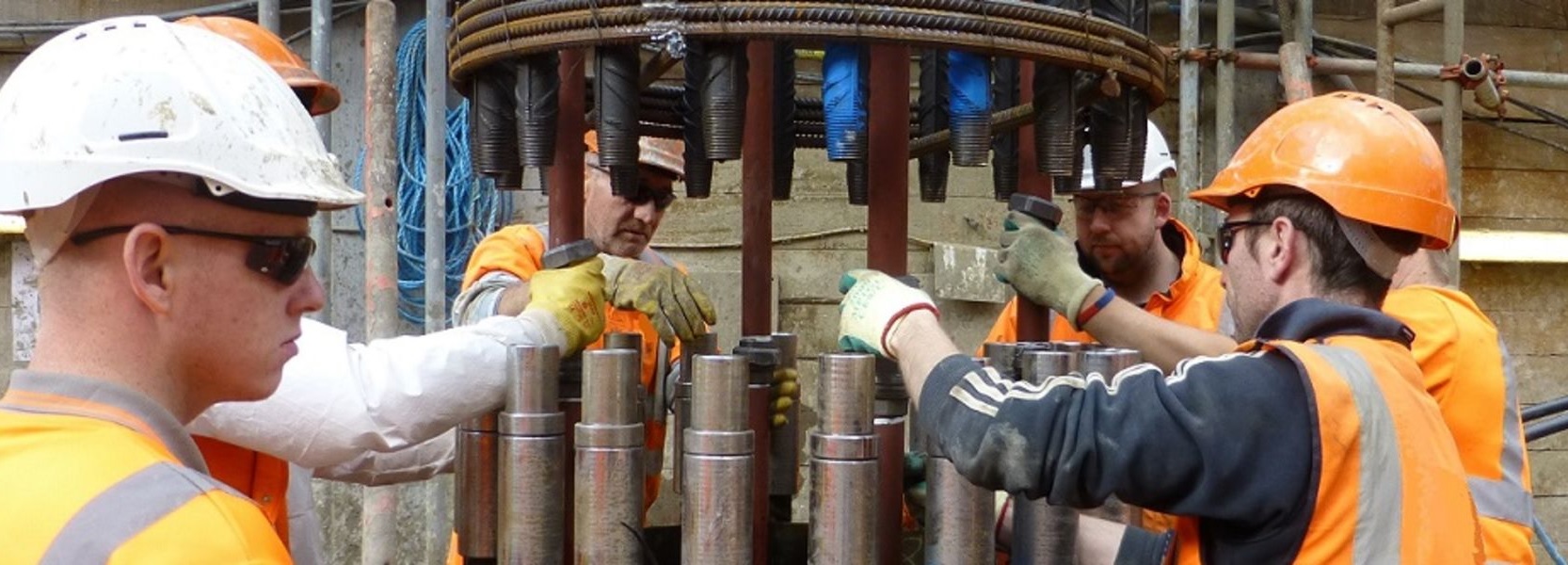The study has been prompted by long-running concern about the inherent dangers of the pile testing method, which involves the placement and jointing of the logging tubes in piles and has resulted in several injuries in recent years
The FPS has reviewed the use of sonic logging before but is now investigating the technique further to assess its continued efficacy as a test method now that there are ‘safer’ alternative methods in wide use across the industry.
The review is being led by Jon Ball, chief geotechnical engineer at Roger Bullivant, part of the Vinci group. His team will investigate how many genuine defects are identified compared to innocent anomalies and their causes. They will look at the sustainability cost of the method and any correlation between sonic logging results and results from alternative methods such as thermal integrity profiling (TIP) testing.
An explanation of the use of sonic logging to test concrete piles, and the hazards associated with the method, can be found on the FPS website*.
FPS chair John Chick said: “It is incumbent upon the FPS to investigate any methodology that presents a safety issue, and sonic logging has directly caused a number of injuries. Sonic logging must be scrutinised to understand if the benefits it offers are worth the risk given the number of alternative, safer and more sustainable, testing methods now commonly available.
“Over the next few months, the FPS technical committee will fully investigate the technique and evaluate whether it is still a viable integrity testing method to be specified, with a view to publishing the results and any subsequent guidance by the end of 2022.”
*www.fps.org.uk/news-views/news/the-hazards-associated-with-sonic-logging
Got a story? Email [email protected]

